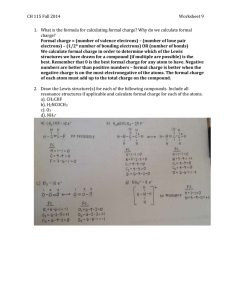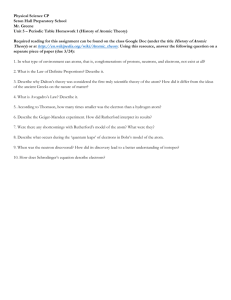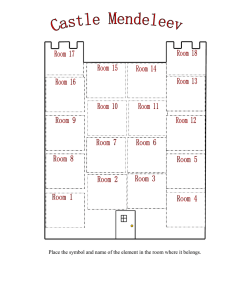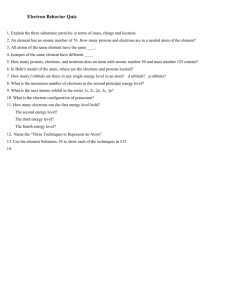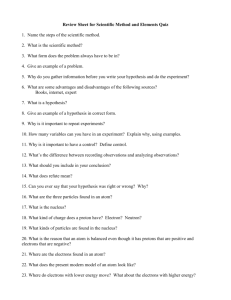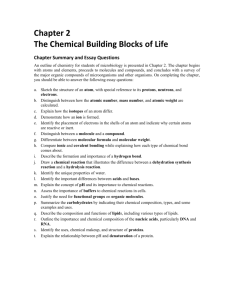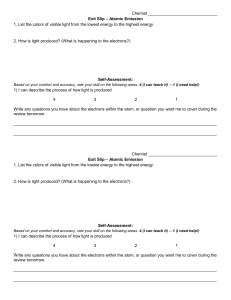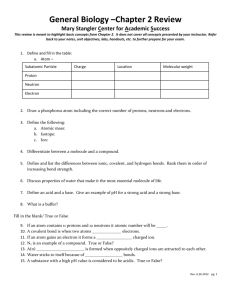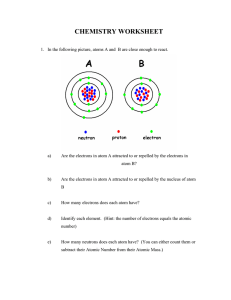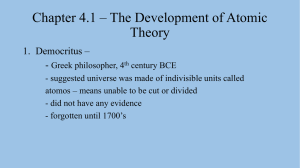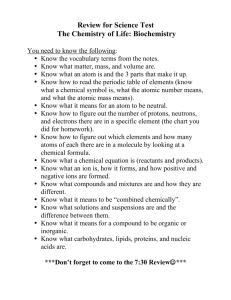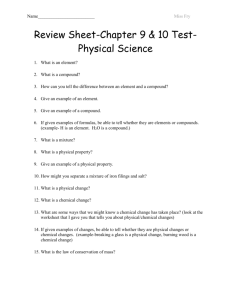Biology Unit 1 Exam Study Guide
advertisement
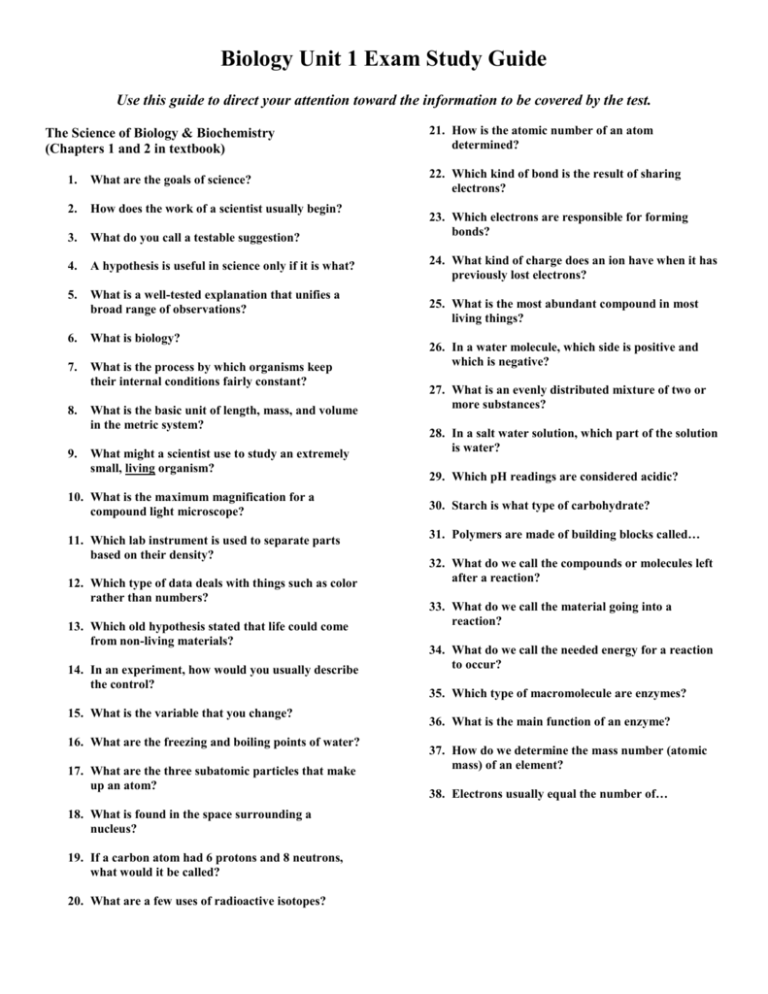
Biology Unit 1 Exam Study Guide Use this guide to direct your attention toward the information to be covered by the test. The Science of Biology & Biochemistry (Chapters 1 and 2 in textbook) 1. What are the goals of science? 2. How does the work of a scientist usually begin? 3. What do you call a testable suggestion? 4. A hypothesis is useful in science only if it is what? 5. What is a well-tested explanation that unifies a broad range of observations? 6. What is biology? 7. What is the process by which organisms keep their internal conditions fairly constant? 8. 9. What is the basic unit of length, mass, and volume in the metric system? What might a scientist use to study an extremely small, living organism? 10. What is the maximum magnification for a compound light microscope? 11. Which lab instrument is used to separate parts based on their density? 12. Which type of data deals with things such as color rather than numbers? 13. Which old hypothesis stated that life could come from non-living materials? 14. In an experiment, how would you usually describe the control? 15. What is the variable that you change? 16. What are the freezing and boiling points of water? 17. What are the three subatomic particles that make up an atom? 18. What is found in the space surrounding a nucleus? 19. If a carbon atom had 6 protons and 8 neutrons, what would it be called? 20. What are a few uses of radioactive isotopes? 21. How is the atomic number of an atom determined? 22. Which kind of bond is the result of sharing electrons? 23. Which electrons are responsible for forming bonds? 24. What kind of charge does an ion have when it has previously lost electrons? 25. What is the most abundant compound in most living things? 26. In a water molecule, which side is positive and which is negative? 27. What is an evenly distributed mixture of two or more substances? 28. In a salt water solution, which part of the solution is water? 29. Which pH readings are considered acidic? 30. Starch is what type of carbohydrate? 31. Polymers are made of building blocks called… 32. What do we call the compounds or molecules left after a reaction? 33. What do we call the material going into a reaction? 34. What do we call the needed energy for a reaction to occur? 35. Which type of macromolecule are enzymes? 36. What is the main function of an enzyme? 37. How do we determine the mass number (atomic mass) of an element? 38. Electrons usually equal the number of…
